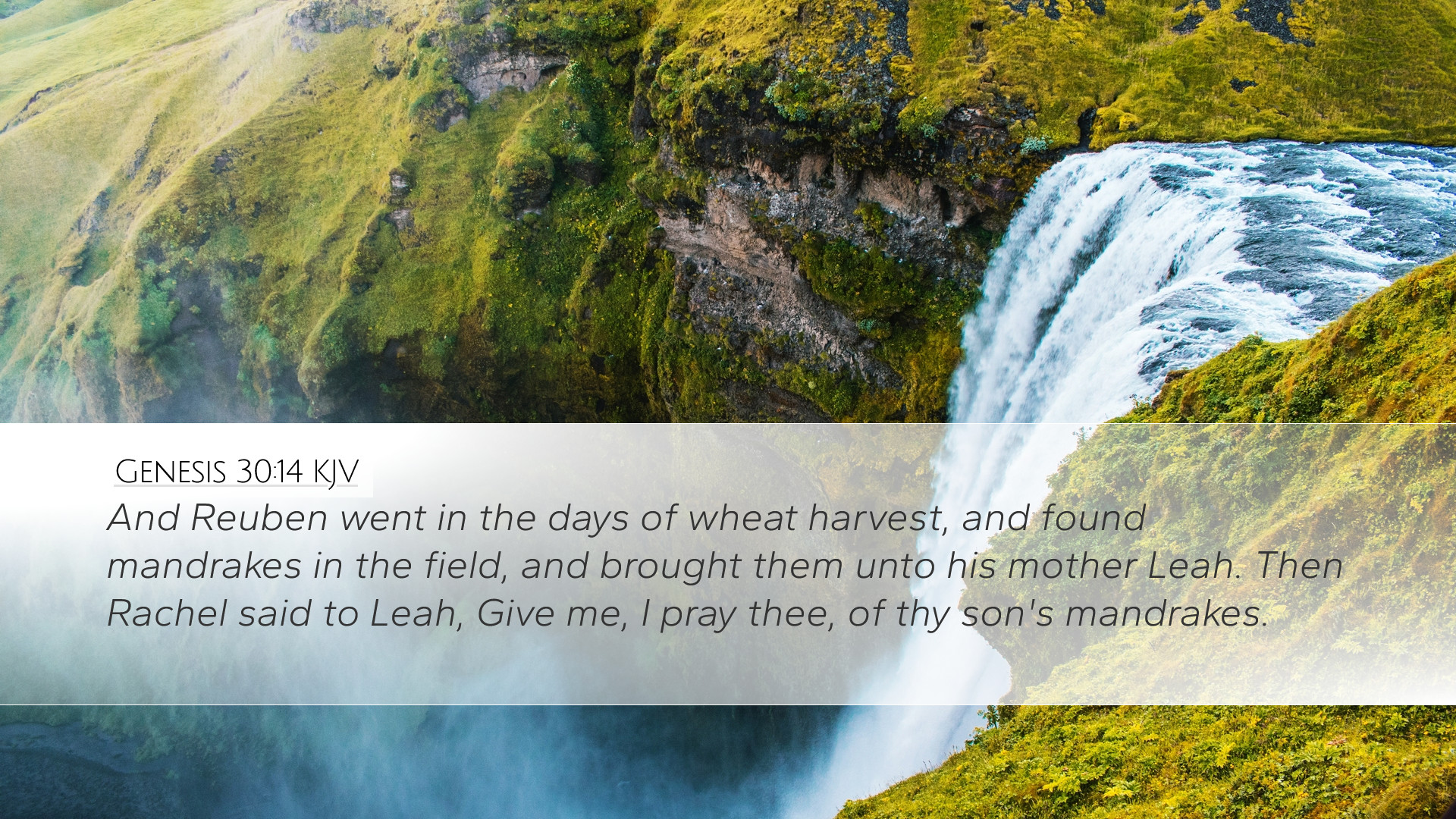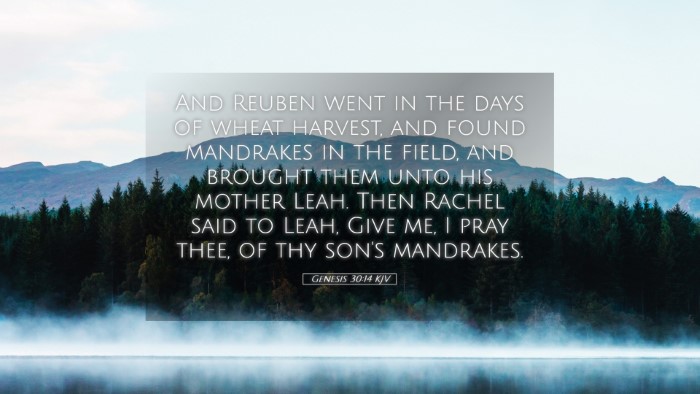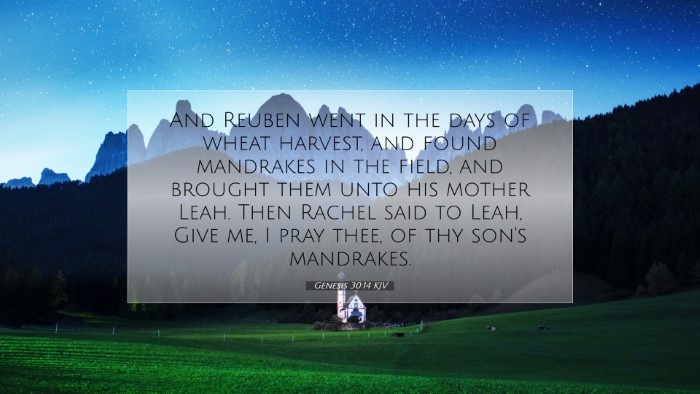Commentary on Genesis 30:14
Genesis 30:14 reads: "And Reuben went in the days of wheat harvest, and found mandrakes in the field, and brought them unto his mother Leah: then Rachel said to Leah, Give me, I pray thee, of thy son's mandrakes."
Overview and Context
This verse is situated within a broader narrative about the family dynamics of Jacob, Leah, and Rachel. It illustrates the competition between Leah, Jacob's first wife, and Rachel, his beloved wife, over fertility and the ability to bear children, which were highly valued in ancient Near Eastern culture.
The mention of "mandrakes" introduces a particular aspect of ancient beliefs regarding fertility, as these plants were traditionally associated with love and procreation.
Exegesis and Commentary Insights
-
Matthew Henry's Commentary:
Matthew Henry points out the cultural significance of mandrakes, which were believed to be a form of aphrodisiac and fertility enhancer. The incident underscores the tension and rivalry between Leah and Rachel, ultimately revealing the desperation of both women in their quest for Jacob's love and societal status as mothers.
He highlights the irony of Reuben, Leah's eldest son, finding mandrakes during the wheat harvest, a time of plenty, yet the familial relationships are marked by strife and conflict.
-
Albert Barnes' Notes:
Albert Barnes emphasizes the symbolism embedded in the mandrakes, symbolizing both hope and desperation. He stresses that Rachel's request indicates her desire not just for physical fertility but a deeper yearning for her husband’s affection.
Barnes notes the cultural context surrounding mandrakes, which were often associated with fertility rites and festivals, and he explains how Leah's willingness to share them is an acknowledgment of her diminished status in the family hierarchy.
-
Adam Clarke's Commentary:
Adam Clarke offers an analysis of the botanical and medicinal properties attributed to mandrakes parallel with their mythical associations. He stresses the prohibition of reliance on such superstitions, pointing out that true fertility is a matter of divine providence.
Clarke also notes that Rachel's asking for mandrakes includes a layer of bargaining as she seeks to use them in attempts to induce pregnancy, reflecting the overarching themes of manipulation and favoritism prevalent throughout Genesis.
Theological Implications
This verse opens significant theological reflections on human longing, the nature of desire, and the consequences of rivalry. The desperation displayed by Leah and Rachel serves as a commentary on the human condition — the longing for love, acceptance, and legacy.
Moreover, the text offers profound insights into the ways in which divine sovereignty disrupts human schemes. While Rachel seeks to manipulate circumstances through mandrakes, the narrative ultimately points toward the belief that God, not magic, governs fertility and the future.
Application for Pastors and Theologians
For pastors and theologians, this passage provides fertile ground for discussions on:
- The nature of rivalry and competition in human relationships: Genesis 30:14 exemplifies how envy and desire for validation can distort familial relationships.
- The role of women in biblical narratives: This text invites deeper examination of women's agency, social standings, and their quest for recognition in a patriarchal context.
- Divine intervention versus human effort: The story reflects on how God’s designs often transcend human miscalculations, advocating reliance on divine will rather than personal manipulation.
Conclusion
Genesis 30:14 encapsulates a deeply relational and cultural conflict, providing an opportunity for reflection on human desires and divine providence. Through varying insights from respected biblical commentators, readers can glean both historical context and theological significance, enriching their understanding of this complex biblical passage.


